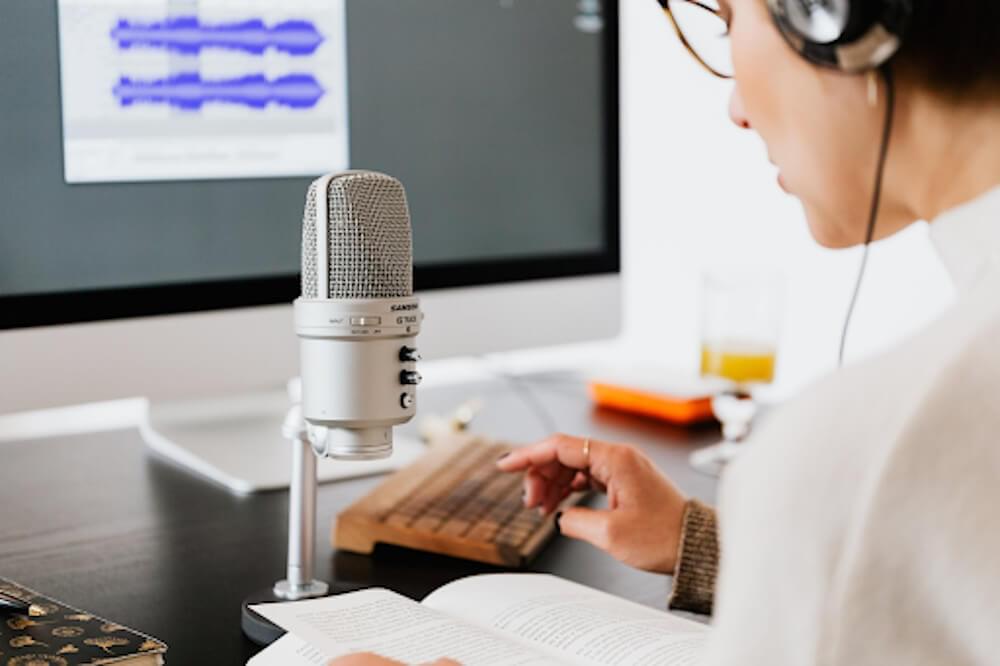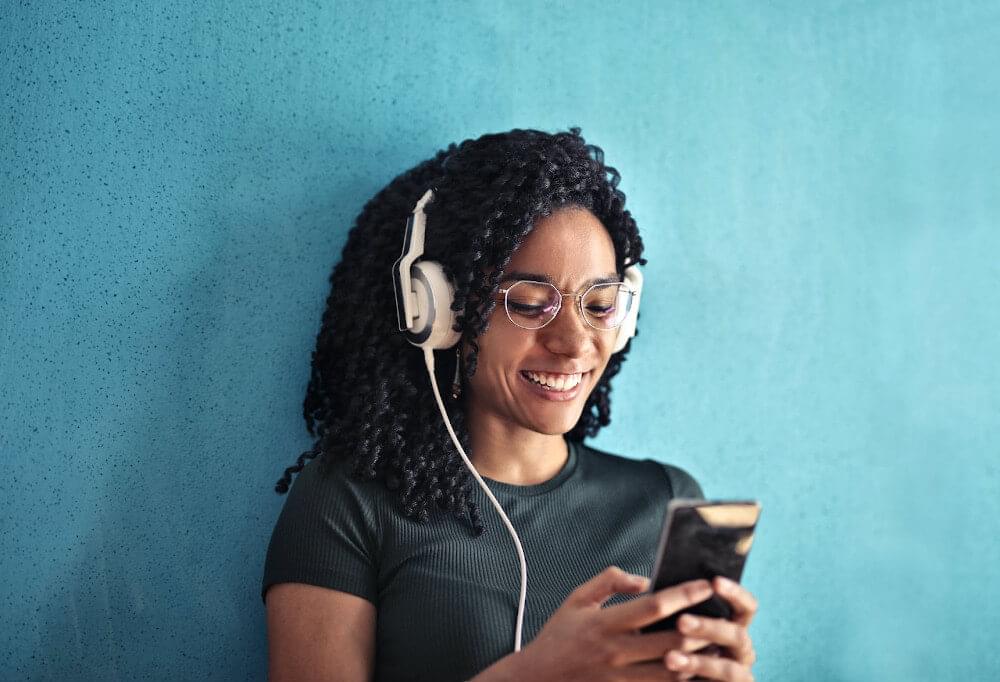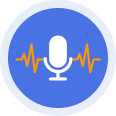Listening Versus Reading Which is more efficient for learning?
Mar 19, 202112 mins read
Do you prefer reading a book or to listening to the audio version? Your response may depend on many variables, such as utility or availability. The discussion about the distinctions between reading and listening comprehension has held center stage once again. Besides a decision for one over the other, the most essential inquiry is; which of the two benefits us learn important information, enhance our comprehension, and make us more capable? The answer is it always depends.
Even for people who prefer books, getting the possibility to read can be a provocation. It depends on audiobooks or blogs that feature text-to-speech, a suitable option for old-fashioned reading. You can hear the latest bestseller while traveling or tidying up the house.
Specific choices and even learning impediments can execute a function. But, there are variations in comprehension, depending on how we utilize information. It’s also important to point out that there are differences between reading or listening for pleasure versus learning.
Physical Books Vs. Audiobooks
Are we more comprehended if we physically read a book in comparison to hearing the same material? Learn when audiobooks caught the market years ago? Futurist recommended listening would shade reading as our chosen training method. It seems like books are still with us and will be for the coming future. Owning access to one version provides us benefits when the other isn’t suitable or available. Reading a book or magazine while driving in the park or on a treadmill is often tricky. That’s when utilizing our earbuds to listen to audiobooks or sites that highlight text-to-speech is a more dependable method.
One difference between listening to an audiobook and reading the related material is how our brains treat the knowledge. Both stimulate distinct sections of the brain. But, University of California psychology professor Matthew Traxler discovered that the “mental machinery” needed to understand and retain information settles the same, irrespective of whether we heard or read the material. Another study indicated adult volunteers to one of three organizations. The first listened to selections of a story from World War II. A second group read the similar material on an e-reader, while the third group concurrently applied both approaches. The effects revealed little variation in the test scores despite the system utilized. Both specialists recognized that either listening or reading is admissible for easier topics typically obtained in entertainment or news publications and websites. We learn more data for more complicated subjects if we establish more force into the means, such as reading weighty materials.
How Listening & Reading Influence Brain Activity
The human brain is fairly incited by both reading and listening based on the University of California at Berkeley neuroscientists studied MRI brain scans of individuals confirmation.
Participants read dialogues from a podcast scene and were told one word at a time to replicate how the brain receives auditory material. Utilizing early research, they were capable of coding each word and the brain’s areas impacted. Researchers then designed maps to assess which components of the brain are excited by specific words. The results displayed no distinguished distinctions between listening and reading.
The Effects Of Reading Versus Listening
Emotional Response
Physically reading a book can be a more intimate experience because your inner voice is bound for producing everything that’s not from only the words on the page. It’s an individual option for everyone, and as you become more competent in both reading worlds, you’ll know which version is right for you. You can clarify back and forth about the personal vs. the social reading activity.Meanwhile, Drs. Markman and Duke apply the case of laughter and comedy to explain how audiobooks can sometimes evoke a more emotional answer to the content. It’s a more social happening to hear the vocal distinctions, satire, etc., that comes from listening to another human speak. If you haven’t fully engaged in that audio life yet, biographies are the gateway to being exposed to experiencing audiobooks.
Speed
There is one ultimate and crucial element that has been definitively proven reading is faster than listening. According to several references, the normal adult reads lines around 250 to 300 words per minute. The approved talking speed for high comprehension is 150 to 160 words per minute. By contrast, auctioneers speak at 250 words per minute, the equivalent rate as reading. The bottom line is that there are several different methods individuals learn and understand an idea. They don’t all depend on their listening skills alone.
Listening Skills
Several experts conclude that reading assists us in developing our listening skills. One is Steve Kaufmann, a specialist in learning languages. According to Kaufmann’s references, to develop listening skills is also to read the same content. He also recommends listening to new material in comfortable surroundings helps us comprehend complicated or new material more efficiently.
Andrew Cohen of BrainScape implies that when initially studying a foreign language, reading is best. He also considers that seeing the text of a word benefits strengthens our capability to retain its use. More importantly, Cohen thinks reading along with an audiobook is the most efficient way when learning languages or something new.

What is an Audiobook and Text-To-Speech?
Technology provides, and technology eliminates. So, even though your concentration extents are becoming shorter and less, and the capacity to focus on one piece at a time is a long-forgotten art, books are still important and vital. There have been many new technologies infiltrating the publishing industry in modern times, and with these technologies have come discussion and debate enclosing their influence on the way we read. There have been many new technologies infiltrating the publishing industry in modern times, and with these technologies have come discussion and debate enclosing their influence on the way we read.
Both audiobooks and text-to-speech (TTS) can support people who have reading problems like dyslexia. This assistive technology allows us to listen to a book being read audibly as they look at the words. But audiobooks and TTS are distinct in crucial ways.
The Difference Of Audiobook And Text-to-Speech
An audiobook is known as an audio recording of a book being read aloud, while text-to-speech (TTS) software is an app utilizing technology that speaks aloud digital text such as books, magazine articles, news articles, and websites on a computer or mobile device.
Audiobooks are recorded utilizing the human voice, the author often of the publication or some other well-known actor or voice-over specialist. Because an individual reads the text, audiobook readings manage to include changes in tone and emotion and pause in the reading at regular places like at the end of sentences.
TTS utilizes computer-generated voice. There are several different TTS voices, and relying on the software being used, the reader can decide the gender and accent of the voice. As technology develops, the voices are sounding more and more natural.
Audiobooks are usually produced as a digital file such as MP3 format, which can be played on computers or mobile devices, and smartphones.
TTS is a software program. It is often available as a pre-loaded utilization on various devices, and a type of TTS apps can be downloaded and installed for the major operating programs.
What is an Audiobook?
Audiobooks are voice records of the text of a book that you hear rather than read. It can be accurate word-for-word transcriptions of books or abridged variants. You can listen to audiobooks on any smartphone, tablet, computer, home speaker system, or even in-car entertainment system. Audiobooks are normally purchased and downloaded in the same style as digital music and video. They can also be bought from online bookstores or downloaded from public domain places. Most public library systems contribute audiobook downloads online, and all you necessitate is a library card.
Advantages of listening to an audiobook:
Enhances your listening skills When listening to an audiobook, you depend essentially on your hearing as there is no visual evidence. It delivers your ear sharper and leads you to listen to ideas such as inflection for definition. You’ll also become used to the speed and accent of native English speakers.
Availability and convenience You can read while making other things. Additionally, you don’t have to bring a physical book around or require sufficient light to do it. It’s an all-embracing travel partner.
Improves vocabulary, pronunciation, and comprehension Just like reading a book, you retain these benefits when you listen to an audiobook. Also, it’s more useful than not studying at all! It allows you to support your language learning impulse even while you are occupied with other matters in your life.

What is Text-to-Speech Technology?
Text-to-speech (TTS) is a trendy assistive technology in which a computer or tablet reads the words on the screen aloud to the user. This technology is widespread among people who have challenges with reading, particularly those who strive for decoding. By giving the words auditorily, the student can concentrate on defining words rather than spending all their brain power attempting to sound out the words. While this can benefit learners in working around their reading problems and accessing the classroom material, this technology does not help students improve reading abilities.
This form of speech synthesis translates text on a page, such as a help file or web page, into spoken voice output. 5TTS can be used for reading a text message to someone who’s driving or reading the computer image information for a visually impaired individual. Among the reliable tools to apply to enable your website or blog page to be read aloud is by utilizing Auto Blog Reader WordPress Plugin. It can get any text-based message and convert it into a simply conceded verbal message. While TTS may lack the emotional character a human voice naturally affects, the speech synthesis is typically very precise. TTS systems may be applied by:
- Students with dyslexia
- Readers on the go like Blog followers
- Multitaskers, such as full-time mothers or baker, who requires the recipe read aloud
- Old readers
- Visually impaired readers
- Foreign-language students
The Continuous Evolution Of Reading And Listening
As technology significantly impacted every means and systems of our lives, reading and listening skills are hastened by unique means that makes us more adaptive and easier to absorb. While others are debating which is better and the best, it always depends on the individual who is doing the process. It does not matter how advanced your tools are if you are unwilling to adapt and use them accordingly.









